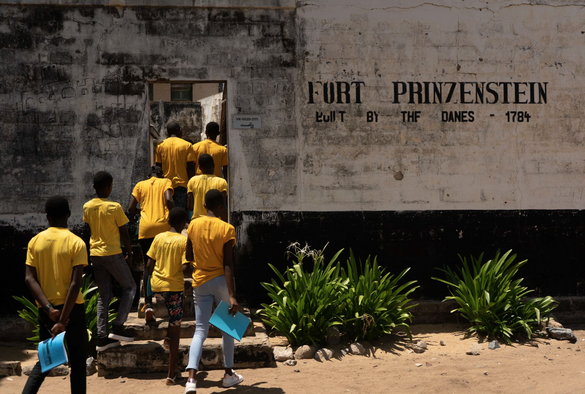Alex Balch is Professor of Politics in the University of Liverpool’s Department of Politics
October 18 is Antislavery day, an opportunity to talk about contemporary forms of enslavement and how to address them. The University of Liverpool has a research cluster on Slavery and Unfree Labour and is co-host of the Centre for the Study of International Slavery (with Liverpool’s International Slavery Museum).
One of the largest projects led by the University of Liverpool in this area is the Antislavery Knowledge Network, a £2m grant from the Arts and Humanities Research Council through the Global Challenges Research Fund. Through this funding, which is a partnership with University of Ghana, University of Hull and University of Nottingham, 14 projects have been supported across 8 different countries in Africa. These have, in various ways, explored the value of creative and arts-based approaches to further our understanding of issues around human trafficking, reintegration of child soldiers, and the legacies of transatlantic and descent-based enslavement. Crucially, they have also been able to use these methods to develop and apply innovative practice to address varied forms of exploitation in ways that are ethically informed and driven by community needs.
Community Stories Project: CM4K
The funding for AKN ends in 2021 and work is currently being completed on a final exhibition to draw together key findings and learning from the project partners. There have already been a number of policy-related outputs, for example about the lessons for the future of international development work in this area. In line with the spirit of innovation, partnership, collaboration and co-development, this exhibition is being co-created with three guest curators based in Kenya and South Africa who are helping to identify key themes, learnings and insights from the projects’ outputs. The curators have produced written materials and video diaries that will work as virtual guides to enable visitors to navigate the extraordinary diversity of work and rich detailed findings that the AKN projects have been able to produce.
While the Covid-19 pandemic and the cut to ODA research funding has provided considerable challenges to the continued work of the AKN and the sustainability of its partnerships, the significance of the AKN exhibition has become only more important. As the UK’s future contribution to international development in this area hangs in the balance, the results of the projects supported through the AKN provide testament to the enormous benefits and potential for innovation that comes from equitable partnership and international collaboration.
As with all the different phases of the AKN, innovation, equity and ethics have remained at the core of the approach for the final exhibition. It will be online for 12 months from November 2021, and there will be multiple versions to maximise access for those without reliable internet: with a Whatsapp version, and a scaled-back archive that can be easily shared. There will also be events to launch the exhibition that will be open to all, recorded and available for downloading, along with opportunities for visitors to the exhibition to continue creative engagement with the outputs and contribute to the research and practice of the network.
